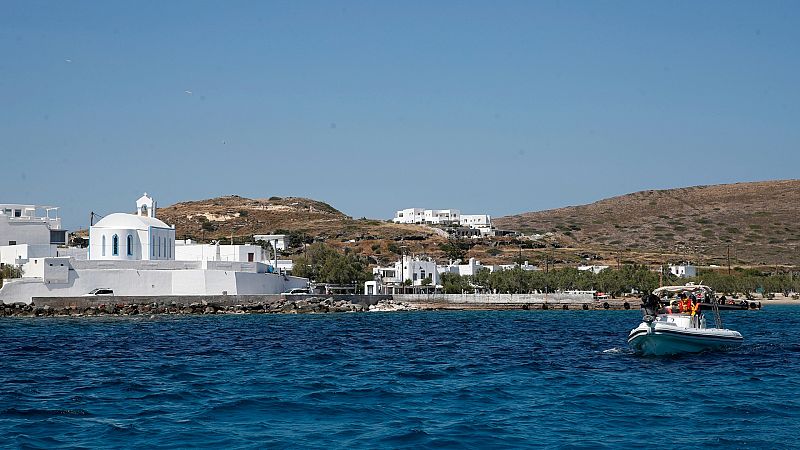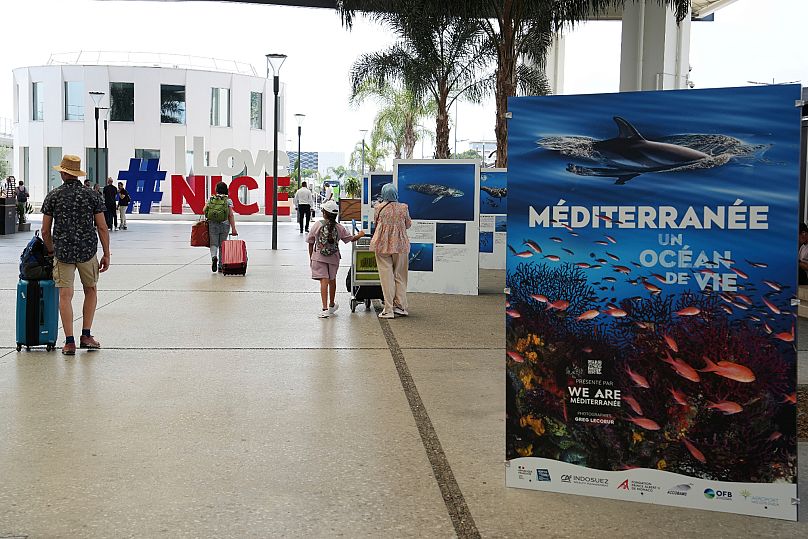
The European Commission presented a plan aimed at better protecting oceans on Thursday, ahead of the UN Oceans Conference (UNOC) in Nice, France, next week.
It says the European Ocean Pact is a “comprehensive” roadmap to protect the ocean, promote a blue economy and support the well-being of people living in coastal areas.
The pact brings together EU ocean policies under one single framework to address threats facing the bloc’s oceans.
It lays out several key priorities, including protecting and restoring ocean health, boosting the EU’s blue economy, supporting coastal and island communities, advancing ocean research, enhancing maritime security and defence, and strengthening ocean diplomacy.
“It will not only benefit the planet, but also the people who call the coast their home, and the generations who will steward our oceans tomorrow,” European Commission President Ursula von der Leyen said.
Commissioner for Fisheries and Oceans, Costas Kadis, added that it wasn’t just a “message in a bottle” but a concrete plan for action.
"It also offers immense potential for more investments in a sustainable blue economy, and it is key for our security," he added.
Headline pledges include proposing a new European law on the oceans by 2027 and revising two maritime directives to better protect biodiversity.
But environmental NGOs aren’t so sure. While the pact shows “tentative steps” in the right direction, they say there are “critical gaps” which must be addressed. They consider it a missed opportunity for the EU to show leadership at the UNOC, where it will present the Pact next week.
NGOs say ‘lacklustre’ Pact puts future of Europe’s seas at risk
In a joint statement, a group of six leading environmental NGOs said the Pact falls short of delivering the urgent action and binding targets that are needed to protect oceans.
BirdLife Europe, ClientEarth, Oceana, Seas At Risk, Surfrider Foundation Europe, and the WWF European Policy Office welcomed the announcement but warned that to be successful, it must lead to the immediate implementation of existing obligations and include legally binding targets.
Vera Coelho, deputy vice-president of Oceana in Europe, said it was a “missed opportunity” for the EU to show leadership at the upcoming UNOC.

“It proposes to continue the same failed, case-by-case approach that has enabled destructive practices like bottom trawling to continue for decades inside the EU’s so-called ‘protected' areas,” Coelho explains.
“It opens the door to revising key pieces of EU law, such as the Common Fisheries Policy, rather than proposing an implementation and enforcement strategy to address the real root of the ocean’s multiple crises: lack of political will by member states to meet agreed targets and implement EU law.
“By deferring real action, this lacklustre Pact puts at risk the future of Europe’s seas and of the people who rely on them.”
The NGOs are urging EU institutions and member states to strengthen the pact with concrete measures and ensure that ocean protection becomes central to ocean-related EU laws.
“While the Commission promises in the Ocean Pact to work on enforcement, it falls short, offering no concrete plan for how ocean laws, which exist on paper, will actually be implemented at sea,” adds Juliet Stote, law and policy advisor on marine ecosystems at ClientEarth.
“Currently, EU laws are continuously breached - with destructive activities such as bottom trawling routinely taking place in Marine Protected Areas, and overfishing continuing in EU waters - this must stop.”







